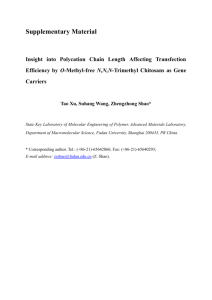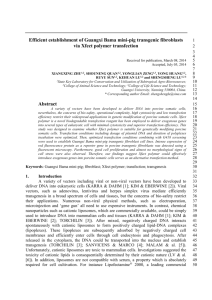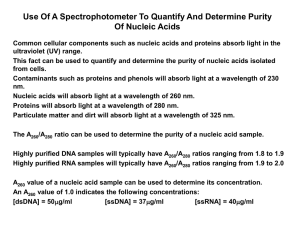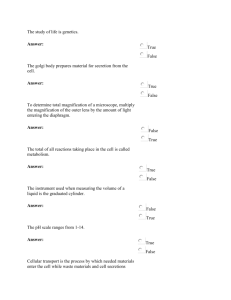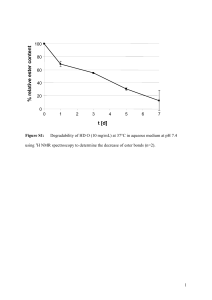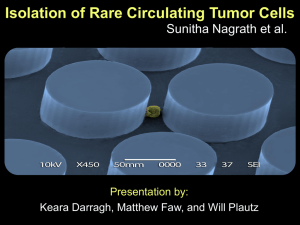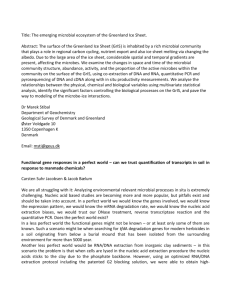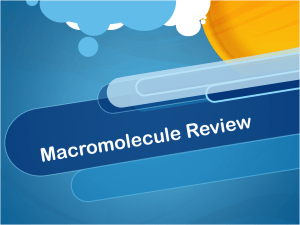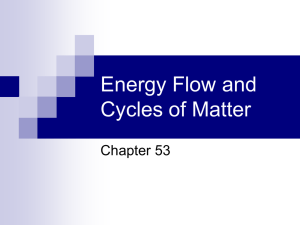Optimisation of a microfluidic method for the production of
advertisement
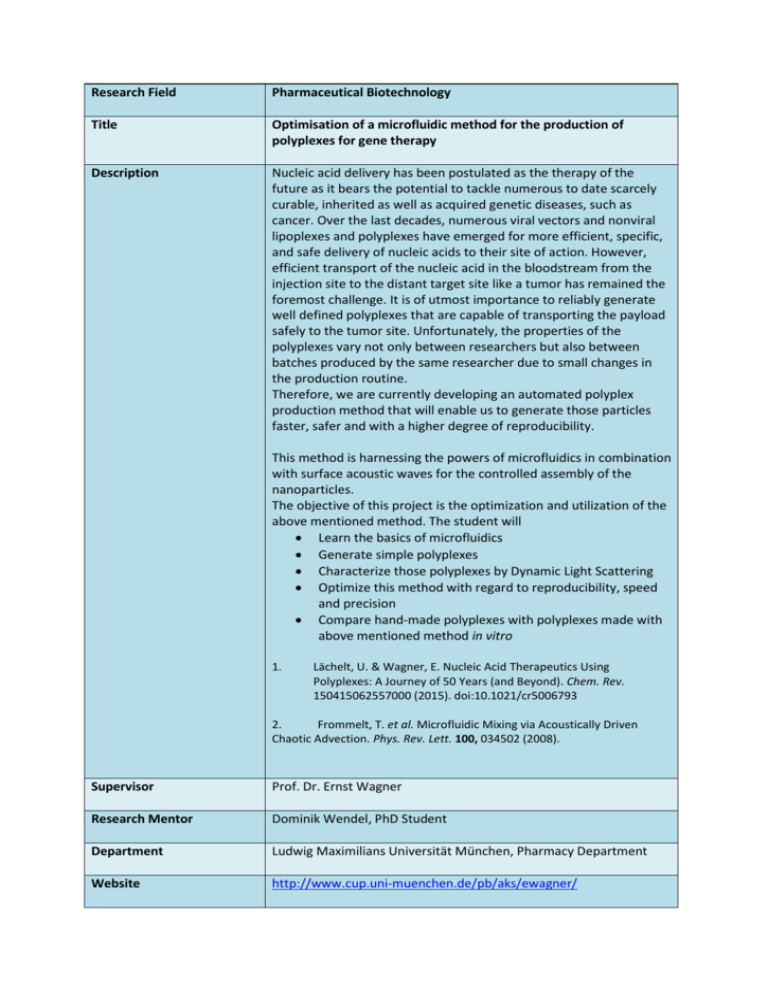
Research Field Pharmaceutical Biotechnology Title Optimisation of a microfluidic method for the production of polyplexes for gene therapy Description Nucleic acid delivery has been postulated as the therapy of the future as it bears the potential to tackle numerous to date scarcely curable, inherited as well as acquired genetic diseases, such as cancer. Over the last decades, numerous viral vectors and nonviral lipoplexes and polyplexes have emerged for more efficient, specific, and safe delivery of nucleic acids to their site of action. However, efficient transport of the nucleic acid in the bloodstream from the injection site to the distant target site like a tumor has remained the foremost challenge. It is of utmost importance to reliably generate well defined polyplexes that are capable of transporting the payload safely to the tumor site. Unfortunately, the properties of the polyplexes vary not only between researchers but also between batches produced by the same researcher due to small changes in the production routine. Therefore, we are currently developing an automated polyplex production method that will enable us to generate those particles faster, safer and with a higher degree of reproducibility. This method is harnessing the powers of microfluidics in combination with surface acoustic waves for the controlled assembly of the nanoparticles. The objective of this project is the optimization and utilization of the above mentioned method. The student will Learn the basics of microfluidics Generate simple polyplexes Characterize those polyplexes by Dynamic Light Scattering Optimize this method with regard to reproducibility, speed and precision Compare hand-made polyplexes with polyplexes made with above mentioned method in vitro 1. Lächelt, U. & Wagner, E. Nucleic Acid Therapeutics Using Polyplexes: A Journey of 50 Years (and Beyond). Chem. Rev. 150415062557000 (2015). doi:10.1021/cr5006793 2. Frommelt, T. et al. Microfluidic Mixing via Acoustically Driven Chaotic Advection. Phys. Rev. Lett. 100, 034502 (2008). Supervisor Prof. Dr. Ernst Wagner Research Mentor Dominik Wendel, PhD Student Department Ludwig Maximilians Universität München, Pharmacy Department Website http://www.cup.uni-muenchen.de/pb/aks/ewagner/
